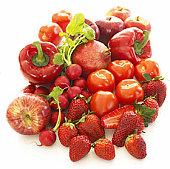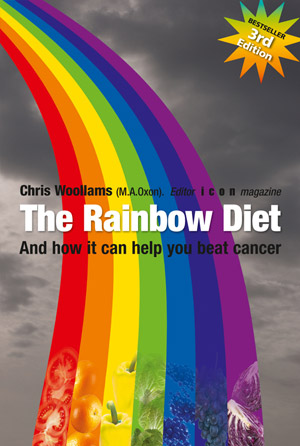One of our doctors answers a patient question on how to manage cachexia, a condition where the chemotherapy drugs taken induce a dangerous weight-loss downward spiral, while avoiding the typical hospital high fat, high sugar diet; this first appeared in our in-hospital magazine icon
Q: How should a very thin (underweight) cancer patient manage their diet when having chemotherapy; do they need to gain weight and if so how would they do it without following the NHS advice to eat lots of dairy, cheeseburgers and feast on biscuits, cake and slabs of chocolate! At the hospital, they are particularly concerned about giving me chemotherapy and a risk of cachexia. Can I manage cachexia to minimize my risk? I’d be grateful if you could point me in the right direction.
A: There are two parts to this answer, and both come straight out of research:
a) Reducing the risk of cachexia
i) What is cachexia? Hospitals, particularly in the UK, are afraid of cancer patients dying of cachexia. What is this? Cachexia is when the chemotherapy drugs actually cause severe weight loss and this can even lead to death. And we can’t have people dying from a drug, can we? So dietitians (who are rushed off their feet in UK Hospitals and see only the severe cases) produce booklets encouraging ALL patients to eat cheeseburgers, sugary and milky foods and ’feed themselves up’!
But this advice can feed the very cancer you are trying to kill off, it is the opposite of new recommendations emerging in America (to eat nutritiously), it is the opposite of general UK ’Healthy eating’ guide lines, and it is totally opposed to the latest research from UCLA on the benefits of fasting or from Chicago Medical School on calorie restriction, which can improve the performance of the drugs, reduce side-effects and even stop a cancer progressing.
ii) Preventing cachexia - It has now been shown in research that consuming fish oils helps prevent cachexia in lung cancer patients (and I am pretty sure this could be widely extrapolated to include most, if not all, cancers).
Boston College biology Professor Dr. Thomas Seyfried goes further. He has shown that attacked cancer cells produce the pre-cursor agent for cachexia because of their glucose-burning activity, and fish oils can stop this: As Seyfried says, ‘It is important to recognize that pro-cachexia molecules such as proteolysis-inducing factor are released from the tumor cells into the circulation and contribute to the cachexia phenotype. By targeting the glycolyticaly active tumor cells that produce pro-cachexia molecules, restricted diet therapies can potentially reduce tumor cachexia. These therapies could be supplemented with omega-3 fatty acids, which can also reduce the cachexia phenotype. Omega-3 fatty acids from fish oil also have the benefit of maintaining low glucose while elevating ketone levels. Once the tumor becomes managed, individuals can increase caloric consumption to achieve weight gain’.
b) Using a good diet and managing cachexia
The fact is that the normal hospital dietitian recommendations to eat sugary and fatty foods are, for the vast majority of patients on chemotherapy and radiotherapy, actually not just wrong, they are dangerous!
For example, common sugar actually feeds cancer cells - they are inflexible. They MUST have glucose, and that is why they have large numbers of insulin receptor sites on their membranes. If they didn't demand large volumes of sugar, a PET scan using a dye and a sugar solution would not work. Some cancer cells, such as leukemia cells, need sugar so much they have been shown to rob their neighbours and change the insulin levels to keep more sugar in the blood (1).
For example, saturated fat is linked to an increased risk of cancer, and when people have cancer and consume high levels of saturated fat they get more metastases, a weakened immune system and lowered survival (2). So much for the NHS ’Diet for chemotherapy’ recommendations designed to reduce cachexia risk!!! Another point here is that I certainly wouldn't use a Ketogenic Diet whilst on Chemotherapy. The high fat levels would be very risky.
The basic principles of a good anti-cancer diet and managing cachexia are: 
- Eat nutritiously - avoiding all empty calories, (glucose, high fructose corn syrup, fizzy soft drinks, lactose, purchased fruit juices and smoothies, ice cream, cake, biscuits, chocolate, refined food and packaged, prepared food).
- Eat 6 small to medium meals a day, not one or two big ones. Graze. You do not want insulin peaks as they cause inflammation and help cancer spread.
- Eat whole foods - whole carbohydrates, particularly soluble fibre foods like oats, psyllium, pulses, nuts and seeds and deeply colourful vegetables. Consume polyphenols.
- Eat plenty of good fats like extra virgin olive oil, flaxseed oil, nuts like walnuts and almonds, fish oils and avocados.
- Juice green vegetables - do not juice fruits and use during the day. The sugar hit is too great.
- Eat 4 helpings of fish per week; and 2-3 helpings of lean, organic skinless chicken - never preserved, or dried meats.
- Avoid all ’bad’ fats, such as saturated fats and trans fats. Beware dairy, coconut oil and fried food. They can make your cancer worse.
- Nourish your healthy body, not the cancer - Treat your body to the good things in life.
- Take core supplements -
- Vitamin D - which is depleted by chemotherapy yet increases survival times - supplement with 10,000IUs a day
- Fish oils, krill oil or Cytoplan algae oil - one way to avoid cachexia -supplement with 1000 mg a day..
- Magnesium - chemotherapy drugs can drain your body of essential magnesium - supplement with at least 200mg a day. It will also help keep your cells' mitochondria alkaline, especially if you avoid sodium-rich foods.
- Take a yeast killer - such as 2 x 150 mg of oregano oil. Yeast build up with chemotherapy drugs leading to worse fatigue and nausea.
Go to: 10 ways to make your drugs work better and reduce side-effects
10. The key is to be nutritious and nourishing. If you are concerned about weight loss you can eat more soluble fibre, and more good fats. No problem.
Go to: The Ideal diet is a naturally proven diet
* * * * * * * *
References
1. 20 links between sugar and cancer
2. Saturated fat consumption and increased cancer metastases and decreased survival
See our other relevant articles:
Why you need an acid gut and alkaline cells
Fish oils, flaxseed benefits
The Ketogenic Diet
Fasting and cancer
The Rainbow Diet

 At last - the definitive, research-based book on how to build a diet to help beat cancer. Click here to read about it.
At last - the definitive, research-based book on how to build a diet to help beat cancer. Click here to read about it.